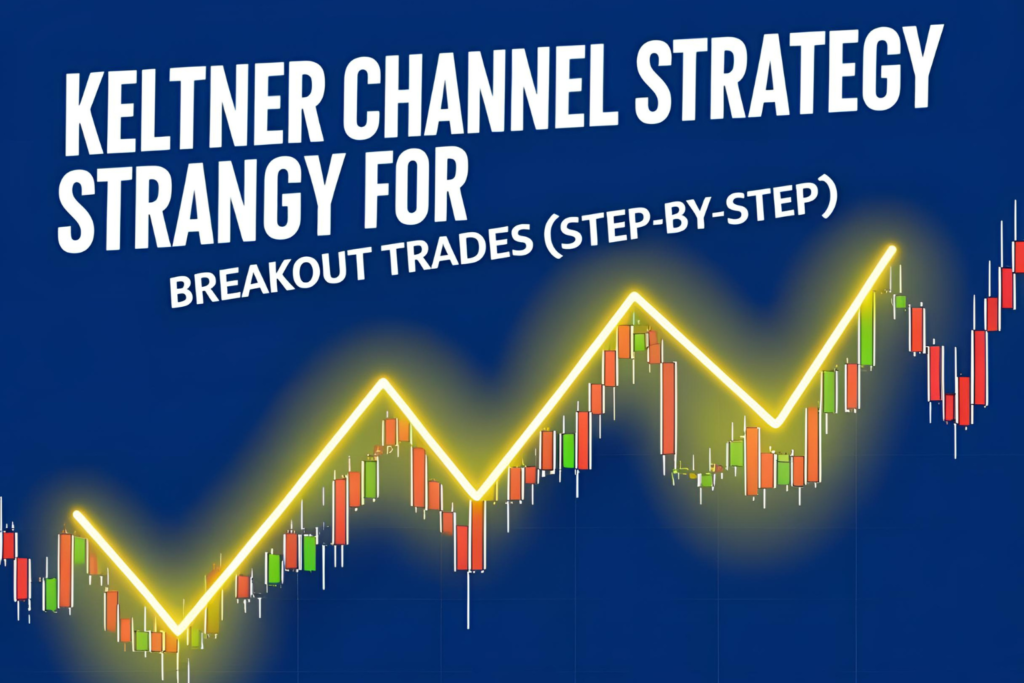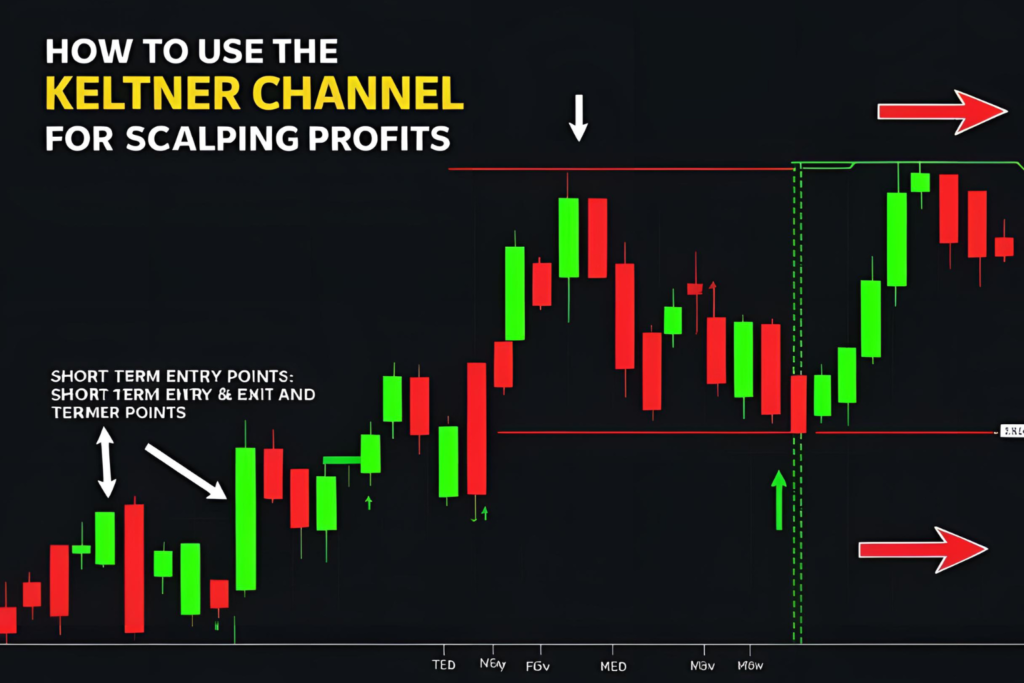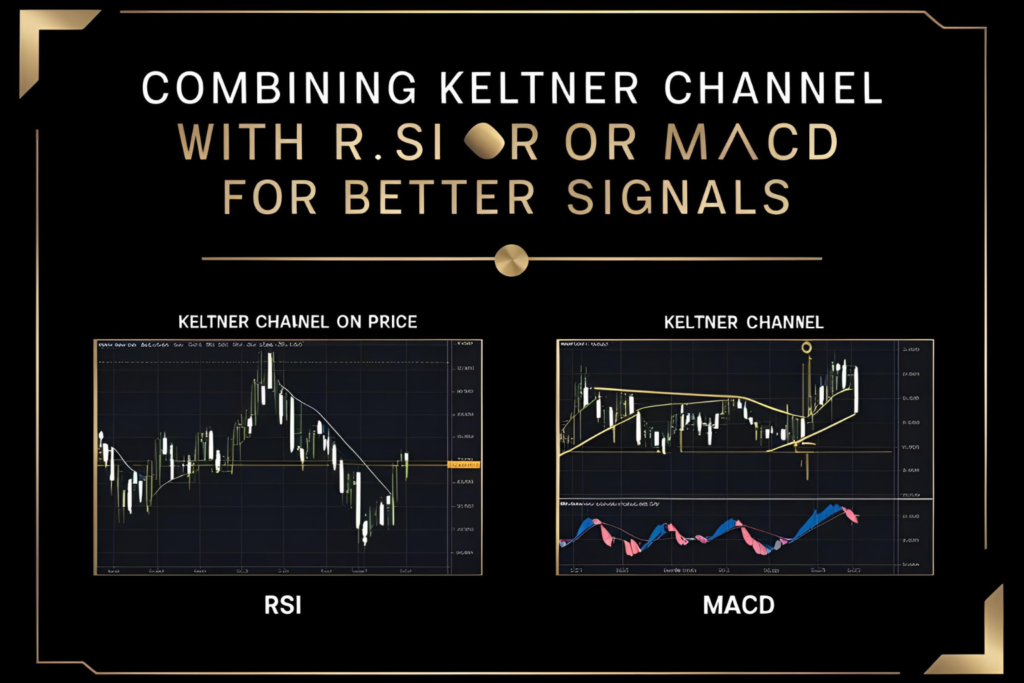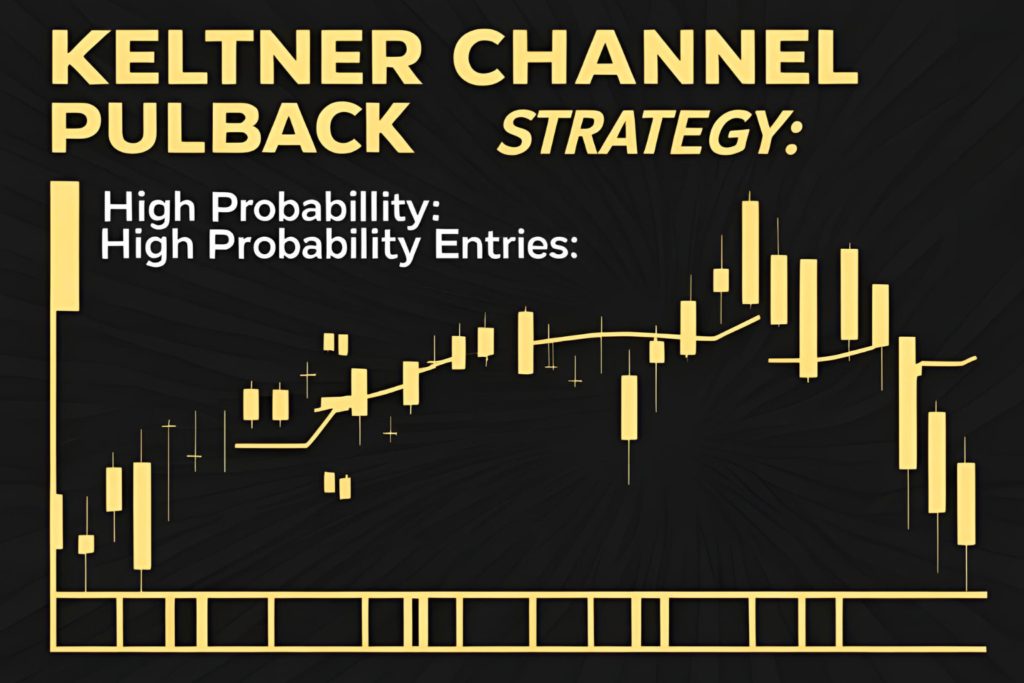The Keltner Channel is a powerful tool for trend-following traders. It adapts to price movement and volatility, helping traders identify and stay in high-probability directional moves. This guide explains a complete Keltner Channel trend-following strategy with rules you can apply across multiple markets.
Why Use Keltner Channel for Trend Trading?
The indicator provides:
- A clear view of trend direction using the EMA
- Dynamic volatility bands to guide trade entries and exits
- A framework for setting tight stop-losses and trailing profits
It works especially well when combined with price structure and momentum filters.
Ideal Timeframes for Trend-Following
- 15-minute or 1-hour (intraday)
- 4-hour or daily (swing trading)
- Weekly (position trading)
Choose a timeframe based on your preferred holding duration.
Recommended Keltner Channel Settings
- EMA: 20
- ATR: 10 to 14
- Multiplier: 2
These values offer a balanced channel suitable for most trending markets.
Keltner Channel Trend-Following Rules
1. Identify the Trend
- If price stays above the EMA and channels slope upward → uptrend
- If price remains below the EMA and channels slope downward → downtrend
Confirm with:
- Higher highs and higher lows (for uptrend)
- Lower highs and lower lows (for downtrend)
2. Entry Method
- Wait for a pullback to the middle EMA line
- Enter when price resumes in the trend direction with a strong candle
- Optional: confirm with RSI above 50 (uptrend) or below 50 (downtrend)
3. Stop-Loss and Exit
- Place stop-loss just outside the opposite band
- Exit partially at the outer band, or use a trailing stop behind the EMA
- For long trends, ride the move until price closes inside the opposite band
Example Setup (Long Trade)
- Daily chart shows clear uptrend in a stock
- Price pulls back to the EMA line
- Strong bullish candle closes near upper band
- Enter long with stop below lower band
- Exit half at upper band and trail the rest using the EMA
Tips for Trend-Following Success
- Avoid entering during wide consolidations
- Don’t fight the trend — trade only in the dominant direction
- Use volume confirmation for stronger conviction
- Let winners run using trailing exits
Final Thoughts
The Keltner Channel trend-following strategy gives traders a disciplined way to enter and manage trades within trending markets. With EMA guidance and ATR-based volatility bands, it simplifies decision-making while protecting against emotional exits.
It’s ideal for traders who prefer structured setups with clear rules and visual confirmation.
FAQs
1. Can I use this strategy on all markets?
Yes. It works on forex, stocks, crypto, and commodities.
2. What timeframe gives the most reliable trends?
4-hour and daily charts are best for clean, sustained moves.
3. Should I use this strategy in sideways markets?
No. Wait for a confirmed trend before applying this setup.
4. Can I combine this with RSI or MACD?
Yes. Use RSI for trend confirmation and MACD for momentum signals.
5. Does the trend-following method work better than breakouts?
Trend-following can be more reliable and profitable in steady markets, while breakouts work well in volatile or news-driven moves.



